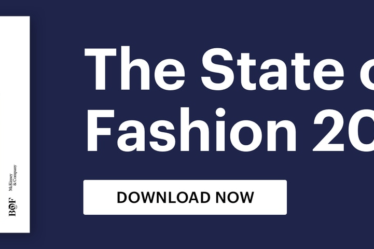
Google will begin testing an experimental new search experience that makes use of generative artificial intelligence, the company announced Wednesday, and its shopping vertical will be a key testing ground.
The new Search Generative Experience, or SGE, as Google is calling it, won’t go live to all users. The company will roll it out in the coming weeks through Search Labs, where it road-tests new features, to users who sign up through its Chrome browser or the Google app. Google will expand it to more testers over time and use the feedback to improve it.
The new format will let Google respond to certain queries by giving users an overview of the main information they should consider, a list of next steps and the chance to ask further questions in a conversational mode. Regular search results would still appear as usual further down the page.
In terms of shopping, Google hopes the feature will make it easier for users to learn about and compare products on its site. SGE will also offer capabilities based on Google’s shopping graph, its expansive data set of more than 35 billion product listings.
The company’s shopping vertical has already become a major channel for brands and retailers to get their items in front of shoppers. The new features could make it even more vital.
“We believe that it can help transform online shopping” said Lilian Rincon, Google’s senior direct of product for consumer shopping, noting that apparel is one of Google’s most-searched shopping categories.
If a user wants to find the best hiking boots, for example, their search results under SGE might provide a list of the top considerations to keep in mind and suggest products based on information and reviews published about hiking boots. For searches about a single product, SGE could display a snapshot of its features, show which sellers carry it, its pricing and where it’s in stock.
It could offer quick comparisons with a similar product, too, if a shopper is trying to decide between two items. A user who searches for skirt trends could also see trending items, like denim skirts, based on Google’s shopping graph.
Rincon said search today works well when users know what they’re looking for, and often even when they don’t. SGE would be a complement to conventional search — not a replacement for it — and would be useful when shoppers are trying to research products where there are a variety of factors to consider.
“It’s an experiment to try out a quicker way to analyse a category, research it for you and give you some recommendations that you know are the result of the current stance of products in that category and Google’s understanding of the space,” she said.
By compiling information for users and recommending products based on it, rather than having shoppers read through search results to draw their own conclusions, Google could become even more central to product search for consumers, meaning whether a brand shows up in results would be even more crucial. Companies that already rely on Google Shopping won’t have to change anything on their end to ensure they keep showing up, Rincon said. There will be no new search optimisation requirements, and SGE will still display ads clearly labelled as sponsored.
Other companies from Shopify to Kering have begun experimenting with ways to incorporate generative AI into shopping. Though their focus has been on AI-powered shopping assistants that try to overcome the shortcomings of previous generations of automated chatbots.
As the dominant search engine in the West, Google has been able to take a different course and embed the technology directly into the results users see as they search. The company has been working to add generative AI into more of its consumer products after Microsoft and OpenAI, the developer of ChatGPT and the DALL-E image generator, announced a new extension of their partnership earlier this year. Microsoft revealed in February it would incorporate ChatGPT directly into its Bing search engine. About six weeks later, Google debuted its own chatbot, Bard.
As of right now, there’s no concrete plan to make SGE the default in Google search, according to Rincon. It’s still an experiment.
But if it goes well, it could mean generative AI would become part of how shoppers find fashion in the future on Google.


